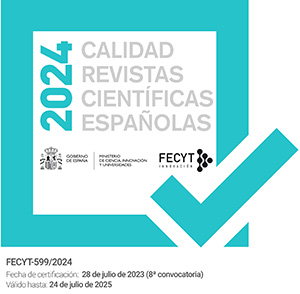Portugal, ¿qué regionalización? : un recorrido por la geografía política de Portugal a lo largo del tiempo
DOI:
https://doi.org/10.5944/etfvi.3.2010.2612Palabras clave:
regionalización, provincias, comarcas, distritos, NUTS, referéndum, concelhos, freguesías, regionalization, provinces, districts,Resumen
La regionalización de Portugal continental viene recorriendo un tortuoso camino desde 1974. Al rechazo de la regionalización en el referéndum de noviembre de 1998 siguió una especie de larga resaca, pero desde el año 2010 el debate regional se ha colado en la agenda política. De nuevo se proponen mapas regionales –hay dos en discusión– y la geografía física, política e histórica de nuestros vecinos del oeste es la coartada en que se apoyan uno u otro proyecto regional.
The regionalization of continental Portugal has traveled a difficult road since 1974. The rejection of the proposed regionalization in the November 1998 referendum meant a long hiatus, but since 2010 the regional debate is back on the political agenda of the country. Again regional maps have been proposed –two are in discussion– and the physical, political and historical geography of our neighbors to the west is the alibi in which either supports one or the others regional project.
Descargas
Descargas
Publicado
Cómo citar
Número
Sección
Licencia
Los autores que publican en esta revista están de acuerdo con los siguientes términos:
- Los autores conservan los derechos de autor (copyright) de las obras publicadas y garantizan a la revista el derecho de ser la primera publicación del trabajo al igual que permiten la reutilización del mismo bajo la licencia de uso indicada en el punto 2.
- Las obras se publican en la edición electrónica de la revista bajo bajo una licencia Creative Commons Reconocimiento-NoComercial 4.0 Internacional, que permite a otros compartir el trabajo con un reconocimiento de la autoría del trabajo y de la publicación inicial en esta revista. Se pueden copiar, usar, difundir, transmitir y exponer públicamente, siempre que: i) se cite la autoría y la fuente original de su publicación (revista, editorial y URL de la obra); ii) no se usen para fines comerciales.
- Se permite y se anima a los autores a difundir electrónicamente las versiones pre-print (versión antes de ser evaluada) y/o post-print (versión evaluada y aceptada para su publicación) de sus obras antes de su publicación, ya que favorece su circulación y difusión más temprana y con ello un posible aumento en su citación y alcance entre la comunidad académica (por ejemplo, en repositorios institucionales o en su propio sitio web). Color RoMEO: verde. (Véase The Effect of Open Access) (en inglés).
Authors who publish in this journal agree to the following terms:
- Authors retain copyright and grant the journal right of the first publication with the work simultaneously licensed under a license Creative Commons Reconocimiento-NoComercial 4.0 Internacional that allows others to share the work with an acknowledgement of the work's authorship and initial publication in this journal.
- Authors are able to enter into separate, additional contractual arrangements for the non-exclusive distribution of the journal's published version of the work (e.g., post it to an institutional repository or publish it in a book), with an acknowledgement of its initial publication in this journal.
- Authors are permitted and encouraged to post their work online (e.g., in institutional repositories or on their website) prior to and during the submission process, as it can lead to productive exchanges, as well as to earlier and greater citation of the published work (See The Effect of Open Access).







